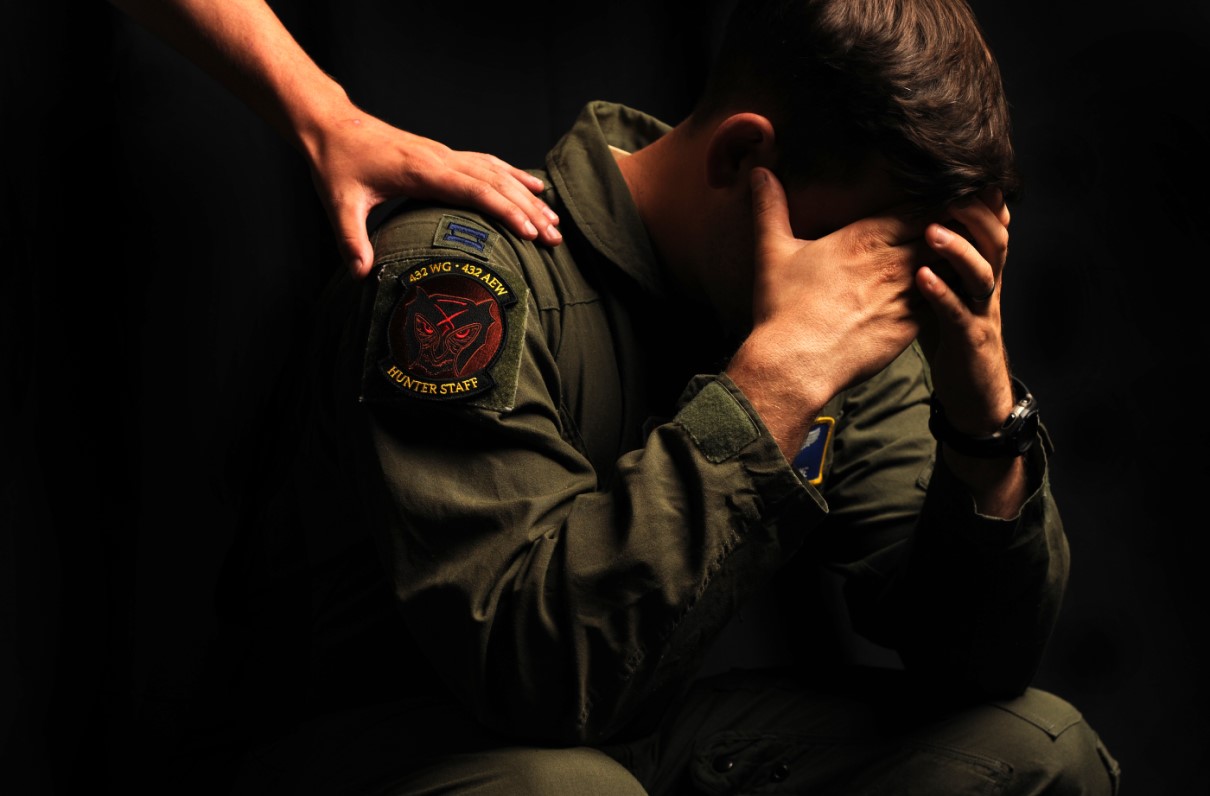Editor’s note: This article by Stephen Losey originally appeared on Military.com, a leading source of news for the military and veteran community. If you or someone you know is in crisis, contact the Veterans Crisis Line at 1-800-273-8255 (press 1) or via www.veteranscrisisline.net.
The number of veterans who died by suicide dropped noticeably in 2019, but new data shows vets are still killing themselves at rates alarmingly higher than non-veterans.
The Veterans Affairs Department said Sept. 8 that 6,261 veterans died by suicide in 2019, a decline of 399 from 2018. That amounted to a 7.2% overall decrease in the veteran suicide mortality rate, when adjusted by age and gender, the VA said.
The drop in deaths by suicide represents the steepest since the Global War on Terror began in late 2001, something the VA called "unprecedented" and a reason for hope. Officials did not suggest what may have caused the decline, saying "more remains to be known and understood" on what works to intervene and prevent suicide deaths.
The chairman and ranking member of the Senate Veterans Affairs Committee, Sens. Jon Tester (D-Mont.) and Jerry Moran (R-Kan.) said VA's latest report shows its efforts to prevent suicide deaths and improve mental health "have made a tangible, life-saving impact on our nation's veterans."
"While this is a welcomed step forward, the fact is that one life lost to suicide is one too many, and veterans and their families are relying on VA to provide critical tools and resources now more than ever," Tester and Moran said in a press release.
They pledged to keep pushing the VA to increase its outreach efforts and put programs in place that "will connect more veterans with the care and resources they need to keep from falling through the cracks."
Veteran suicides dramatically increased in 2007 and 2008 and, though there have been some fluctuations and slight year-over-year drops, typically have continued to rise. Between 2005 and 2018, according to the VA's report, veteran suicides increased an average of 48 per year.
The 2019 total is the lowest annual number since 2007, when 6,174 veterans died by suicide.
But despite some progress in 2019, the suicide rate among veterans remains staggering and has grown sharply since 2001.
[RELATED: Study: Suicide Risk Among Veterans Declined During Pandemic]
"Much work remains to be done," the VA said in its report. "As long as veteran suicide numbers are annually in the thousands, there is no sense of mission accomplishment or satisfaction within VA, despite being heartened by unprecedented decreases in veteran suicide the year prior to full COVID-19 onset."
Veterans died by suicide at a rate of 31.6 per 100,000 last year, far higher than the rate of 16.8 recorded for non-veteran adults in the U.S. On average, about 17 veterans killed themselves per day in 2019.
A report from Brown University published in June found that since 9/11, 30,177 active-duty personnel and veterans of the Iraq and Afghanistan wars had taken their own lives -- more than four times as many as were killed in the wars themselves.
The VA said it will continue its 2018 National Strategy for Preventing Veteran Suicide, which calls for a public health approach for reducing suicide deaths that is both community-based and clinically based. VA efforts include providing veterans more access to therapy, building partnerships with rural veterans and their communities on suicide prevention programs, and counseling to help veterans who have access to firearms or poison store them safely.
Although the period the VA studied came before the beginning of the COVID-19 pandemic, it said in its report that it has not observed a rise in documentation of suicide-related indicators, such as on-campus suicide attempts or deaths, or Veterans Health Administration emergency department visits for suicide attempts.
Want to Help Servicemembers in Your Community?
Learn how you can make a difference with your local chapter.
